The following are prepared remarks by Richard C. Bush for the conference “Hong Kong: A snapshot twenty years after the handover,” co-hosted by the Carnegie Endowment for International Peace and the Hong Kong Economic and Trade Office on October 16, 2017.
The somewhat pretentious subtitle of my Hong Kong book is “Living with the Leviathan.” The word “Leviathan” is an allusion to Thomas Hobbes’ classic treatise of political theory, in which he argued that if a society is going to have political order and stability, it must have a sovereign. In the current context, the “Leviathan” that Hong Kong must live with is the People’s Republic of China (PRC). The question is how well Hong Kong can live with its sovereign?
I would like to spend my time this morning talking about the different connotations and shades of meaning of the words “sovereign,” “sovereignty,” and “the state.” All are relevant to Hong Kong, and in revealing ways.
One connotation of sovereignty concerns the territorial scope of a state. When it comes to China, the international community recognizes that Hong Kong is part of the PRC’s sovereign territory. Great Britain used to be the sovereign of at least part of Hong Kong, but London concluded long, long ago that Hong Kong would return to China at some point. Hong Kong could not be its own state, as other British colonies had been. So the UK transferred title over Hong Kong back to China in 1997.
One implication of this reality is that any idea that Hong Kong might become independent is a fantasy. Another implication is that conducting political action to achieve Hong Kong independence is fruitless. It challenges China’s very identity and its overwhelming power.
A second connotation of sovereignty is that the state in question has the absolute right to rule in the territory under its jurisdiction. In the case of Hong Kong, Beijing chose to delegate a considerable amount of governing responsibility to the Hong Kong government.
More importantly, Hong Kong’s sovereign established the rule of law, judicial independence, and the guarantee of civil and political rights, all of which were written into the Basic Law, or Hong Kong’s mini constitution. In effect, Beijing put in place restrictions on its own freedom to engage in the arbitrary exercise of state power to control behavior in Hong Kong.
Therefore, China granted Hong Kong the sort of liberal order that it was unwilling to grant in other parts of the PRC. Not a small gift, in my mind. A gift to be cherished.
The question before us today is how well China honored its commitment to Hong Kong’s liberal order. My view, for your reference, is that until 2015, the central government in Beijing didn’t do a bad job in respecting its commitment in this area. Performance was not perfect, but Hong Kong people did exercise those rights, including support of political reform, and the courts upheld those rights.
I now worry that since 2015, Beijing is actively working to redefine and circumscribe those rights and even the rule of law in Hong Kong. At a minimum, therefore, it is important to preserve this liberal foundation that the Hong Kong system was granted. Which raises the question: Is the way that some Hong Kong people are exercising those rights today a smart way to live with the sovereign? I am sure that Jim Feinerman will talk about this subject so I will not preempt him anymore.
A third connotation of sovereignty is who rules within the sovereign territory. It can be a king, a president, a political coalition, the people, and so on. There are a variety of mechanisms by which rulers are selected including family inheritance, the decision by a collective elite (such as the Chinese Communist Party), popular elections, and others. In theory – and often in practice – popular elections make leaders accountable to the people they lead.
In the case of Hong Kong, Beijing was willing early on to allow popular elections for around half of the Legislative Council (LegCo). Unrepresentative bodies selected the rest of the members and the chief executive of the Hong Kong Special Administrative Region (HKSAR). This system contributed to a concentration of economic and political power, which in turn helped foster populism, a culture of protest, and a belief that the HKSAR and central governments were not sufficiently accountable to the people.
The political debates that occurred between 2013 and 2015 were all about how far to go in changing the method for electing the chief executive and, later on, LegCo members.
The key point of disagreement over electoral reform was whether the mechanism of a nominating committee, on which Beijing insisted, would so distort the candidate selection that voters on the pan-democratic side would not have a candidate for whom they could vote. In other words, in the critics’ view, using the nominating committee to screen candidates would not allow a genuinely competitive election.
To my mind, the outcome of that debate was tragic. Regrettably, instead of mutual accommodation leading to compromise, there was growing mutual mistrust and even hostility. The following events highlight missteps taken by both sides:
- Beijing waited too long to undertake genuine electoral reform, particularly after radical political action reared its head about a decade ago.
- Some on the pan-democratic side stopped exercising their political rights according to existing norms about political assembly (of which the Umbrella Movement was only the most obvious example).
- In spring 2014, Beijing could have made adjustments to its nominating committee proposal that probably could have enabled passage of its package, but it did too little too late to engage moderate democrats.
- In spring 2015, pan-democrats chose to dismiss the HKSAR government’s proposal to LegCo, which, if adopted, would have created a narrow pathway to the election of a pan-democrat as chief executive. For the details, please read my book.
- Since then, mainland actions have called into question Beijing’s commitment to Hong Kong’s liberal order. Meanwhile, populist “localists” in Hong Kong have engaged in symbolic actions in pursuit of a goal that cannot be realized and that confirm Beijing’s worst fears. This only leads the PRC government to deepen its obsession with ensuring control, including through Leninist means.
If the failure of electoral reform was a tragedy, the dismantling of Hong Kong’s liberal order would be an even greater one.
The failure of electoral reform and the growing threats to the liberal order are all the more unfortunate because Hong Kong faces a number of daunting challenges: maintaining economic competitiveness, coping with an aging society, and improving governance, just to name a few. It needs an effective political system to do that. Electoral reform was not a sufficient condition for improving the political system, but it is a necessary one. The political inequality that uncompetitive elections create both causes and reinforces social and economic inequality. As long as a minority of the political community is picking the chief executive and some members of LegCo, protest will remain the main outlet for political opposition. That in turn will impede progress on policy issues like economic competitiveness.
So what is the best-case scenario? On the one hand, it seems to me, political activists in Hong Kong need to step back and regain a strategic perspective. China is Hong Kong’s sovereign. It is there to stay. It has the power to change the parameters of the political system and restrict the freedoms that Hong Kong people have held dear. Political activists must learn to live with the sovereign.
At the same time, Beijing must understand that it must learn to live with the Hong Kong people and accommodate to their economic and political demands. In my view, when Hong Kong people believe that government is working for them, they are moderate, pragmatic, patriotic, and no threat to Chinese authority.
So in order to preserve a stable and prosperous Hong Kong, Beijing must reaffirm the liberal foundation that it established and move toward a genuine electoral competition for senior positions. It must authorize a more equitable sharing of resources within society. These are its responsibilities as Hong Kong’s sovereign.
Perhaps this twentieth anniversary of reversion provides an opportunity to renew the commitment that the Basic Law seemed to promise for a political system that not only respected the sovereign’s authority, but also opened wider channels for political participation by Hong Kong people.
The Brookings Institution is committed to quality, independence, and impact.
We are supported by a diverse array of funders. In line with our values and policies, each Brookings publication represents the sole views of its author(s).
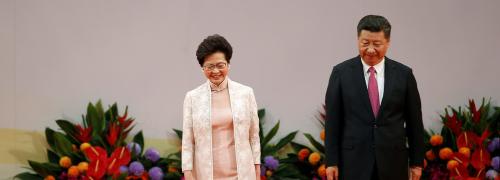
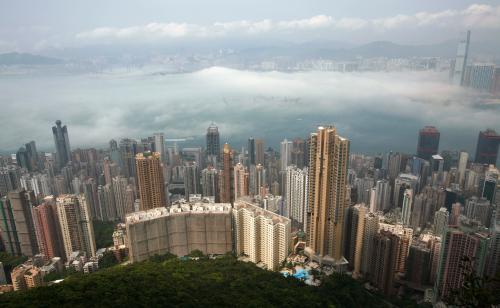
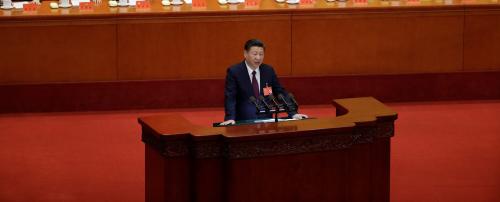
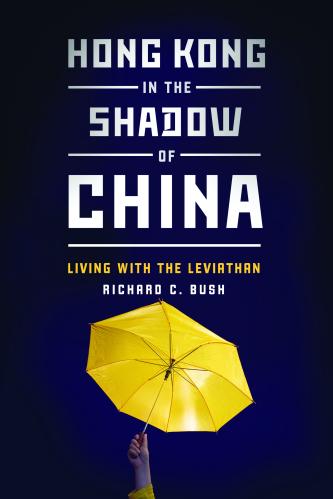
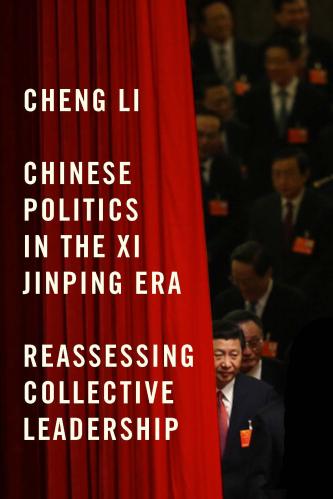
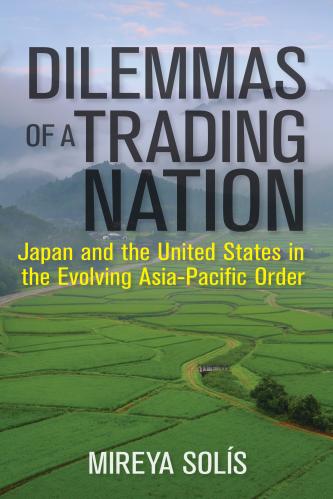




Commentary
Hong Kong: Twenty years after reversion
November 6, 2017